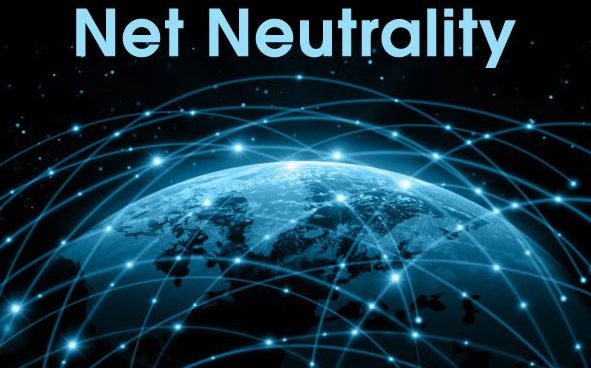Net Neutrality Explained

https://providencedailydose.com/wp-content/uploads/2017/07/net_neutrality-591×368.jpeg
Before the big decision that was made on December 14th that the FCC (Federal Communications Commission) would repeal the rules of net neutrality rules, nobody was going around talking about “net neutrality.” This is because it was an obscure term that no one would ever use in conversation. However, after FCC’s decision to repeal it, the term is now being tossed around commonly in conversations throughout the school. This is because not having net neutrality is a huge issue that will prevent people from being able to binge-watch their favorite shows on Netflix, spend hours watching amazingly useless yet entertaining content on YouTube, or even type a simple question into Google. This is because your internet service providers (ISPs) will now have the ability to place additional fees on top of your monthly internet bill depending on how much you use certain websites. Also, these companies will have the ability to block certain websites from you, slow down specific websites of their choosing, and can offer you premiums at an extra cost that will give access to higher quality service and certain content (Which will allow content companies to downgrade the effectivity of their service to people who don’t pay the premiums. As a result, the majority of people will have to deal with a slower level of service).
Here’s the big question: Is this the beginning to the end of the internet as we know it? Definitely not and here is why:
First off, what does the term “net neutrality” even mean? Well, in short it is the principle that your internet service provider does not have the ability to discriminate against any user in any manner. This means your provider can’t regulate how much you use the internet or have the ability to interfere with any of the content you decide to use– whether this is in the form of a website, application, a way of communication, a streaming service like Netflix or Hulu, or any form of online content. As an example, it is similar to your phone company and how they don’t have the capability to decide who you call and what you are able to say in those calls.
Now that net neutrality rules have been taken away, what can we expect to see in the next few weeks when the results of this decision are able to go into full effect? Although the possibilities of what can happen to the beautiful invention of the internet may seem dismal and threatening, it may not be as bad as you currently think it is. Let’s start with the fact that having the rules being taken away, companies such as AT&T, Comcast and Verizon will now be able to decide how they want to control their consumers’ capabilities. These companies will be in charge of what websites, content and applications can succeed. This is a huge negative since it will give them the ability to slow down the content of their consumers who don’t pay the premium fee, make the content of their competitors have sluggish speeds, and can even have the ability to go as far as to blocking political opinions the company disagrees with. (Highly unlikely the company will go this far, but it is possible).
The fact that companies can pick and choose what software and applications will be able to “win,” is going to make it really tough for small business owners and people who are startups looking to advertise their services and create markets. The next Google or Instagram will be swept away in the ISPs dustpan, and will go completely unnoticed. Instead, already established companies that make massive revenue and have already been noticed will be favored. Online users will be subjected to having a limited amount of options, instead of the endless choices everyone had while net neutrality was still in place. An analogy that goes perfectly with this is that the internet used to be a level playing field, but now it is shifting towards a rigged game where the large companies will always be the reigning champions over the little companies. Imagine a world where every time you search something on the internet, you’ll be forced to pay a ten cent charge on top of your monthly internet bill. People are becoming worried that this will become the reality for them.
However, what people don’t realize is the fact that companies won’t even take part in the non-net neutrality system. And here is why: Business would drop drastically for anyone that does it. If Netflix charges you $1 every time you log in and watch something, the millions of customers they would lose would be absolutely astronomical. Every time you search something in Google, you will be charged 10 cents. The amount of people that would switch over to Bing Search would be unfathomable. (And what a bold statement to say!) People will start switching internet providers and it will be catastrophic for the ISPs.
Lastly, one more important thing to note is the fact that net neutrality wasn’t even a thing before 2015. Net neutrality was established under the Obama administration and before it was a thing, nobody was getting a charge every time they went on the internet. In the end, nobody needs to worry about a thing. Net neutrality rules being repealed won’t change a thing and there won’t be a charge for each time you go online. The internet isn’t going anywhere.
~What do you think about this volatile issue? Leave a comment below!

When Justin first started contributing to EMC, he was a 7th grade student with a good sense of humor. Now, he still likes to think he is funny. Justin...

Siela • Dec 22, 2017 at 8:47 pm
Thanks for this great article. I was super worried about Net Neutrality being repealed, but this definitely clears stuff up!!